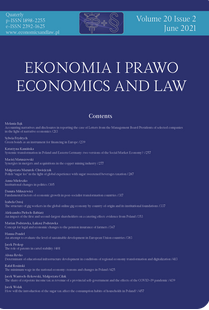Polish ‘sugar fee’ in the light of global experience with sugar sweetened beverages taxation
Polish ‘sugar fee’ in the light of global experience with sugar sweetened beverages taxation
Author(s): Małgorzata Mazurek-ChwiejczakSubject(s): Health and medicine and law, Fiscal Politics / Budgeting
Published by: Wydawnictwo Naukowe Uniwersytetu Mikołaja Kopernika
Keywords: sugar tax; soda tax; SSBs tax; sin tax; corrective tax;
Summary/Abstract: Motivation: Obesity is one of the gravest public health challenges facing the world today. Out of different policy action undertaken by counties to counteract these threats, taxes imposed on sugar sweetened beverages (SSBs) has gaining growing popularity. They are currently imposed on 47 countries worldwide. The Polish ‘sugar fee’ came into force on January 1, 2021. Aim: The aim of the article is to synthesize the global experience with sugar-sweetened beverages taxation, to assess on that basis the construction of Polish ‘sugar fee’ and to identify key opportunities and threats connected with its implementation. Results: Introduction of ‘sugar fee’ in Poland is consistent with the latest global trends in taxation. Its formula gives an opportunity to stimulate consumers to displace SSBs by other healthier beverages and to incentivize drink manufacturers to reformulate their products and change their marketing strategies. There is growing that evidence ‘sugar taxes’ can be effective tools to achieve public health goals, however its effect must be strengthen by multifaceted instruments (e.g. broad information action). The fiscal potential of ‘sugar fee’ is limited, if we assume that its main purpose is to stimulate healthier consumption patterns
Journal: Ekonomia i Prawo. Economics and Law
- Issue Year: 20/2021
- Issue No: 2
- Page Range: 287-303
- Page Count: 18
- Language: English

